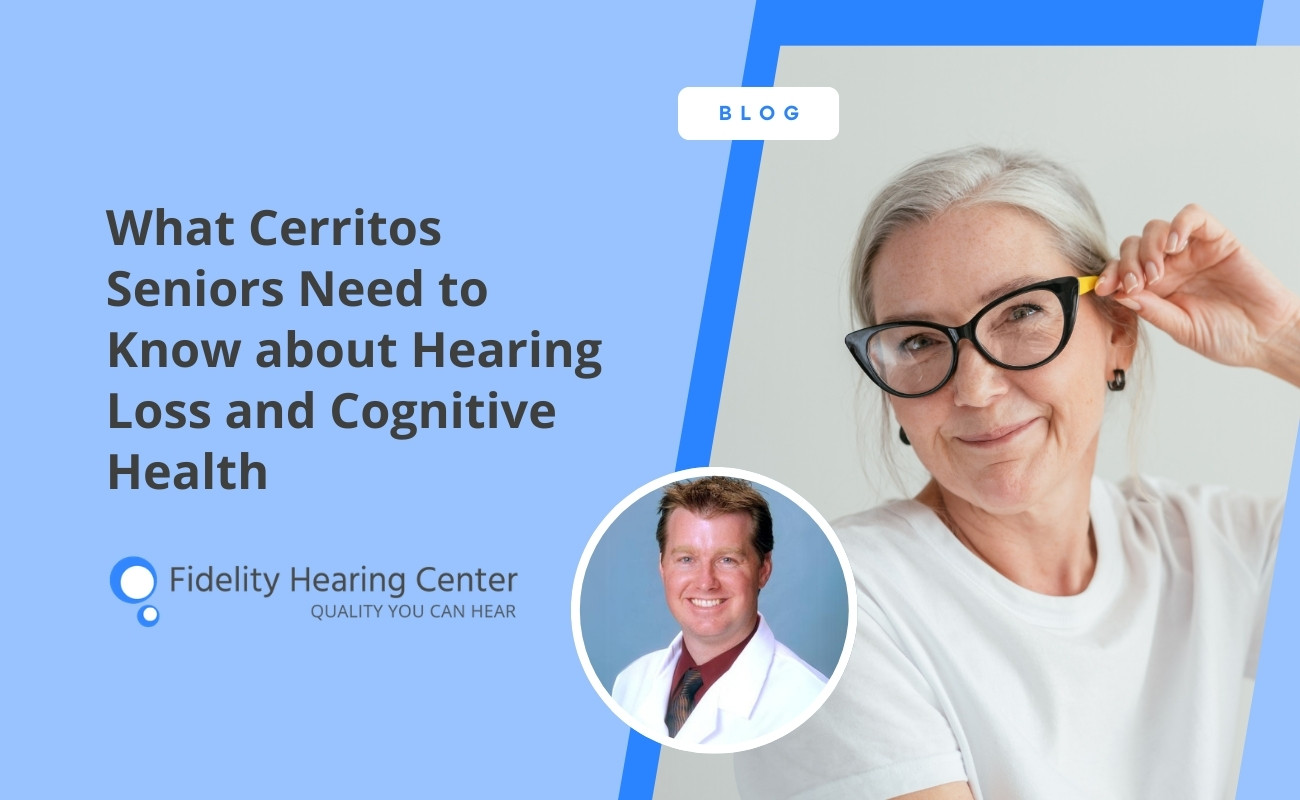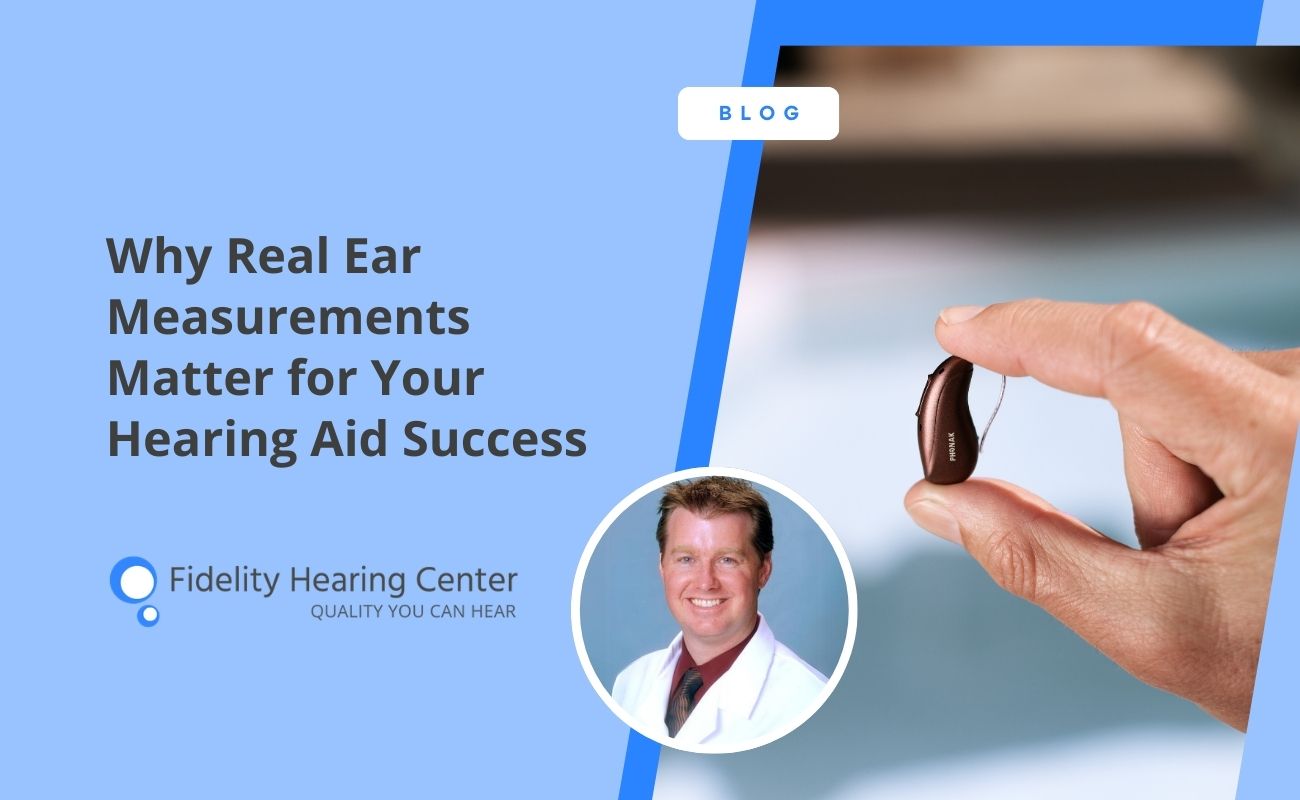Many seniors in Cerritos notice changes in both their hearing and memory, often dismissing these shifts as natural parts of aging. What they may not realize is that these two changes are more connected than they might think. Recent scientific breakthroughs have revealed a powerful link between untreated hearing loss and accelerated cognitive decline, offering new hope for protecting brain health through improved hearing care.
The Brain's Hidden Struggle With Hearing Loss
When you have trouble hearing, your brain doesn't just miss sounds - it goes into overdrive trying to fill in the gaps. Think of it like trying to solve a puzzle with missing pieces. Your brain works much harder to decode unclear speech and interpret muffled sounds, pulling energy away from other cognitive tasks like forming memories or making decisions.
This constant extra effort creates what researchers call "cognitive load." Over months and years, this additional strain on your brain can contribute to mental fatigue, difficulty concentrating, and changes in how your brain processes information. Scientists have discovered that areas of the brain responsible for hearing become less active when hearing loss goes untreated, potentially leading to structural changes that affect overall cognitive function.
The brain's auditory processing centers don't work in isolation. They're connected to regions that handle memory, attention, and problem-solving. When hearing loss disrupts these connections, the effects can spread throughout your cognitive system, making everyday mental tasks more challenging than they need to be.
Landmark ACHIEVE Study Reveals Surprising Results
The most significant breakthrough in understanding hearing loss and cognitive health came from the Aging and Cognitive Health Evaluation in Elders (ACHIEVE) study, the largest randomized controlled trial ever conducted to examine whether treating hearing loss could slow cognitive decline in older adults. This three-year study followed nearly 1,000 adults aged 70-84 with untreated hearing loss across four sites in the United States.
While results were mixed for the total study population, the hearing intervention slowed cognitive decline by 48% in older adults who were at higher risk for cognitive decline. These high-risk participants came from an ongoing heart health study and had more risk factors for developing dementia, including older age and faster baseline rates of cognitive decline.
Those who received hearing aids had an almost 50% reduction in the rate of cognitive decline compared with people in the health-education group. The study provided each participant with professionally fitted hearing aids, comprehensive audiological counseling, and ongoing support - exactly the type of comprehensive care we provide at our practice.
This finding represents a major shift in how we understand cognitive decline prevention. Dr. Frank Lin, the study's co-principal investigator, noted that "hearing loss is very treatable in later life, which makes it an important public health target to reduce risk of cognitive decline and dementia".
Understanding Risk Factors for Cognitive Decline
The ACHIEVE study participants who benefited most from hearing intervention shared several characteristics. They had cardiovascular risk factors, slightly lower baseline cognitive scores, and were experiencing faster rates of cognitive change than healthier volunteers. This suggests that people with multiple health concerns - not uncommon among seniors - may see the greatest cognitive benefits from treating their hearing loss.
Risk factors that may indicate you could benefit significantly from hearing intervention include diabetes, high blood pressure, cardiovascular disease, and a family history of cognitive decline. If you have these conditions along with hearing loss, addressing your hearing may be particularly beneficial for maintaining cognitive health.
The study also revealed interesting differences between participants. Healthy volunteers showed very little cognitive decline over three years, making it difficult to measure additional protection from hearing aids within the study timeframe. This doesn't mean hearing aids wouldn't help these individuals - the benefits might simply take longer to become apparent.
Social Connection and Mental Stimulation
Hearing loss often leads to social withdrawal, creating a domino effect that impacts cognitive health. When conversations become difficult or embarrassing, many people start avoiding dinner parties, family gatherings, or community events. This isolation deprives the brain of the mental exercise that comes from social interaction, following complex conversations, and navigating group dynamics.
Social engagement serves as a workout for your brain. When you participate in conversations, follow stories, or engage in group activities, you're exercising memory, attention, and processing skills. Hearing loss can rob you of these opportunities, leaving your brain with less stimulation and fewer chances to build cognitive resilience.
The ACHIEVE study found that "the hearing intervention improved communication abilities, social functioning and loneliness" in both study groups. This improvement in social connection may be one of the pathways through which hearing aids support cognitive health.
How Today's Technology Supports Brain Health
Modern hearing aids do much more than simply make sounds louder. Advanced devices like the Phonak Infinio Sphere, Oticon Intent, and Starkey Edge AI use artificial intelligence to reduce the mental effort required for listening. These devices automatically separate speech from background noise, identify the sounds you want to hear, and adjust their processing to match your listening environment.
The Oticon Intent's 4D user-intent sensors, for example, monitor where you're looking and how you're moving to understand your listening intentions. This technology reduces the cognitive burden of trying to focus on specific sounds in noisy environments. Similarly, the Starkey Edge AI's Neuro Sound Technology processes information much like a healthy brain would, handling complex sound classification automatically.
When your hearing aids do the heavy lifting of sound processing, your brain can redirect its energy toward memory formation, decision-making, and social engagement. This redistribution of cognitive resources may be one reason why the ACHIEVE study showed such significant benefits for high-risk participants.
Recognizing When Memory Problems May Be Hearing-Related
Sometimes what appears to be memory loss or confusion is actually related to hearing difficulties. If you find yourself feeling mentally exhausted after social events, struggling to follow group conversations, or feeling overwhelmed in restaurants or busy environments, hearing loss may be creating cognitive challenges that seem like memory problems.
Family members often notice these changes before the individual does. If relatives mention that you seem confused in noisy situations, appear withdrawn in group settings, or ask for frequent repetition, these could be signs that hearing loss is affecting your cognitive function.
Many people blame forgetfulness or difficulty concentrating on "getting older," when the real culprit may be the extra mental effort required to process unclear sounds. Addressing hearing loss can often restore mental clarity and reduce the fatigue associated with straining to hear.
Professional Care Makes the Difference
While over-the-counter hearing devices have become more available, the ACHIEVE study used professionally fitted hearing aids with ongoing audiological support. This comprehensive approach includes detailed hearing evaluations, precise programming based on your specific hearing loss pattern, and regular follow-up care to optimize performance.
At our practice, we provide Real Ear Measurements to verify that your hearing aids are delivering the exact amplification your brain needs. This precision fitting process confirms that your brain receives clear, properly processed sound signals, minimizing the cognitive effort required for understanding speech and environmental sounds.
Our approach includes counseling on communication strategies, device maintenance, and gradual adjustment to help you get the maximum cognitive and social benefits from your hearing treatment. This level of professional support was a key component of the successful ACHIEVE intervention.
Cognitive Health Resources in Cerritos
Cerritos offers excellent resources for seniors focused on maintaining cognitive health. The Cerritos Senior Center at Pat Nixon Park provides educational classes, informative workshops on developing healthy lifestyles, and programs that encourage seniors to take charge of their own wellness. Activities include mental stimulation through bridge games, educational workshops, and reading library access.
The center also offers referrals for support groups and various services that help seniors maintain independence. Physical fitness programs including tai-chi, yoga, and walking groups provide the exercise that research shows supports both hearing and cognitive health.
For seniors who may need additional support, the Human Services Association provides supportive services to help elders safely remain at home with independence and dignity. These local resources complement hearing treatment by addressing the social and lifestyle factors that contribute to cognitive health.
Taking Action for Long-Term Cognitive Health
The ACHIEVE study findings suggest that treating hearing loss early may be particularly important for people with risk factors like cardiovascular disease or diabetes. Don't wait until hearing loss severely impacts your daily life. The cognitive benefits of hearing intervention appear greatest when treatment begins before significant social withdrawal or cognitive changes occur.
Maintaining cognitive health requires a multi-faceted approach. Regular physical exercise, social engagement, managing chronic health conditions, and treating hearing loss all work together to support brain health. The encouraging news is that hearing loss represents one of the most treatable risk factors for cognitive decline.
Regular hearing evaluations can detect changes before they significantly impact your life. Early intervention gives you the best chance to maintain both your hearing and cognitive health as you age. The technology available today can help preserve the social connections and mental stimulation that keep your brain healthy and engaged.
Schedule Your Hearing and Cognitive Health Assessment
If you're concerned about changes in your hearing or memory, or if you have risk factors that put you at higher risk for cognitive decline, we encourage you to schedule a comprehensive evaluation with Dr. David DeKriek. Our thorough assessment process examines not just what you can hear, but how hearing loss may be affecting your daily cognitive function and social engagement.
We take time to understand your lifestyle, health history, and cognitive concerns to develop a treatment plan that supports both your hearing and brain health. With the ACHIEVE study showing such promising results for at-risk individuals, there has never been a better time to address hearing loss as part of your overall cognitive health strategy. Contact Fidelity Hearing Center today at (562) 926-6066 to take this important step toward protecting your cognitive health for years to come.





.png)